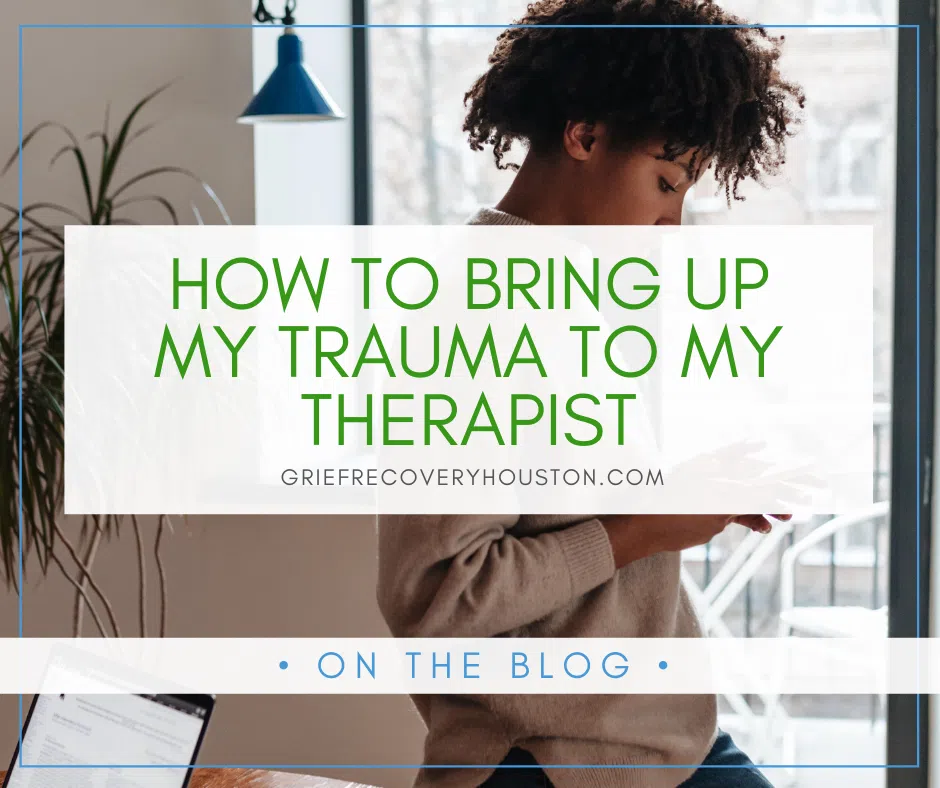- Unpacking Grief and Disability - July 8, 2024
- Breaking the Stigma: 5 Blogs to Better Understand Suicide - May 21, 2024
- 4 Tips for Better Sleep Hygiene - March 4, 2024
 Even when it seems like the opposite is true, as humans we are resilient and have remarkable abilities to heal. This is true of our bodies and our brains as well.
Even when it seems like the opposite is true, as humans we are resilient and have remarkable abilities to heal. This is true of our bodies and our brains as well.
Trauma is something that everyone has experience with, whether big or small. Everyone’s experience with trauma is different, and so not everyone will recover in the same way. Some people work through trauma in talk therapy and others use trauma focused modalities like EMDR to process trauma. There are no right or wrong answers, so it’s important to work with a mental health professional to find the right option for you.
Traditional talk therapy isn’t the only kind of therapy that can help people who are dealing with trauma. EMDR, or Eye Movement Desensitization and Reprocessing, is a therapy modality that can be used to treat trauma, PTSD, anxiety, depression, eating disorders, substance abuse, phobias, and more.
What is PTSD?
Post Traumatic Stress Disorder, or PTSD, is a mental health diagnosis that sometimes develops after someone has experienced trauma.
We’ve all been through experiences that leave us with bad memories or that we found disturbing at the time. Trauma and PTSD are related, though they’re not the same.
PTSD starts as trauma, but instead of being processed and stored correctly by your brain, that process has been interrupted. The trauma is then stuck, unprocessed, causing distress over time. When this happens, it’s called PTSD.
People with PTSD struggle to recover after traumatic or disturbing events, not because of anything they’ve done, but because sometimes trauma gets stuck in the brain.
What is EMDR therapy? 
When you get a paper cut, your body automatically begins a process to help stop the bleeding and heal the wound while fighting off infection. Mental health experts have theorized that the mind is able to heal itself from psychological trauma or injury in a similar way. When our brains aren’t allowed to finish processing the trauma, we can experience distress.
EMDR is one of the most highly recommended forms of therapy for trauma, especially for treating PTSD.
How is EMDR different from talk therapy?
While EMDR sessions are similar to the traditional talk therapy experience, there are some big differences. Before the reprocessing phase of EMDR can begin, it’s important to get a foundation of coping skills ready, so you have resources when you feel distressed during the process. Like talk therapy, your therapist will ask questions about your history and help you develop the tools you need to cope with distress.
Unlike talk therapy, EMDR doesn’t require you to describe your traumatic experience. Instead, what happens in EMDR is much more internal. You and your therapist will decide on a target, or memory, to focus on.
EMDR’s goal is to help desensitize you to the disturbing or distressing memory and instill a positive cognition, or thought, in its place.
 How does EMDR help with PTSD?
How does EMDR help with PTSD?
One of the hallmarks of PTSD is intense distress related to traumatic memories or experiences. With EMDR, you are helping the physical processing of memories in your brain. The bilateral (side-to-side) movements help your brain do the work of reprocessing the disturbing memory so that your distress level goes down.
Desensitizing yourself to traumatic memories can help tremendously with PTSD symptoms like flashbacks and the flight, freeze, or fawn response. EMDR also helps you engage with the rational side of your brain, so you can interrupt any negative core beliefs that add to your distress.
It may seem like a slow process to replay your bad memories and process them completely, but EMDR is actually known for working more quickly than other types of therapy. Most people who use EMDR find that it works more rapidly and effectively than other types of therapy, like talk therapy.
Research also backs up the effectiveness of EMDR. Numerous studies have shown that EMDR has been proven to help drug and alcohol addiction as well as trauma and PTSD and that the results are long-lasting, meaning you can get back to your old self and feel confident in your ability to cope with distress.





No comments yet.